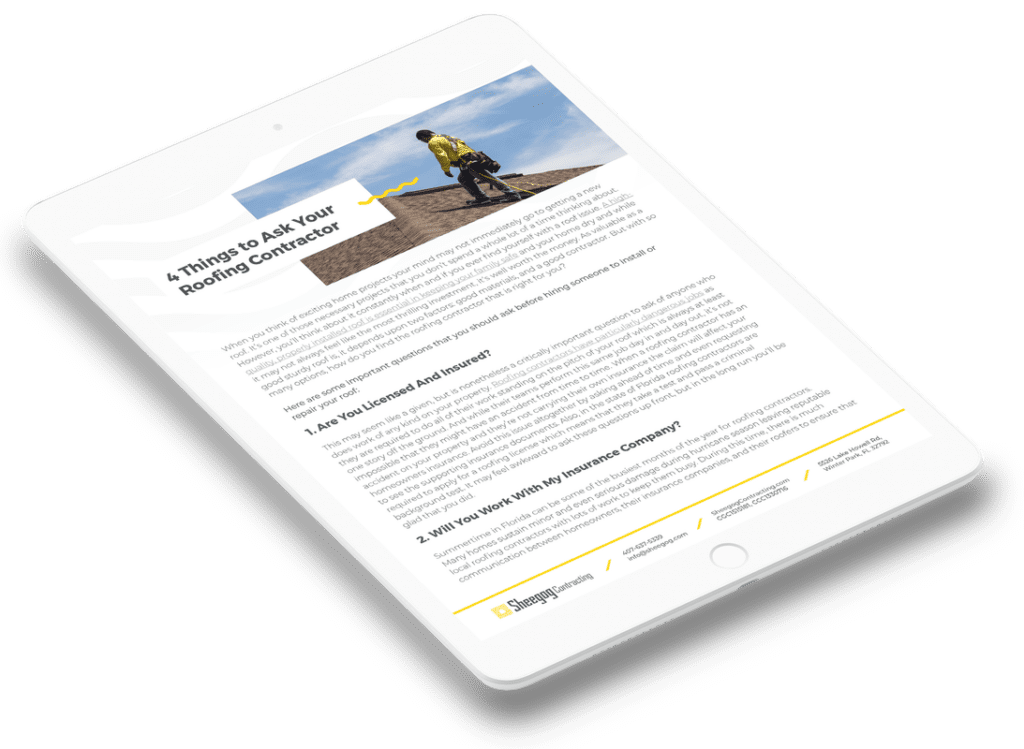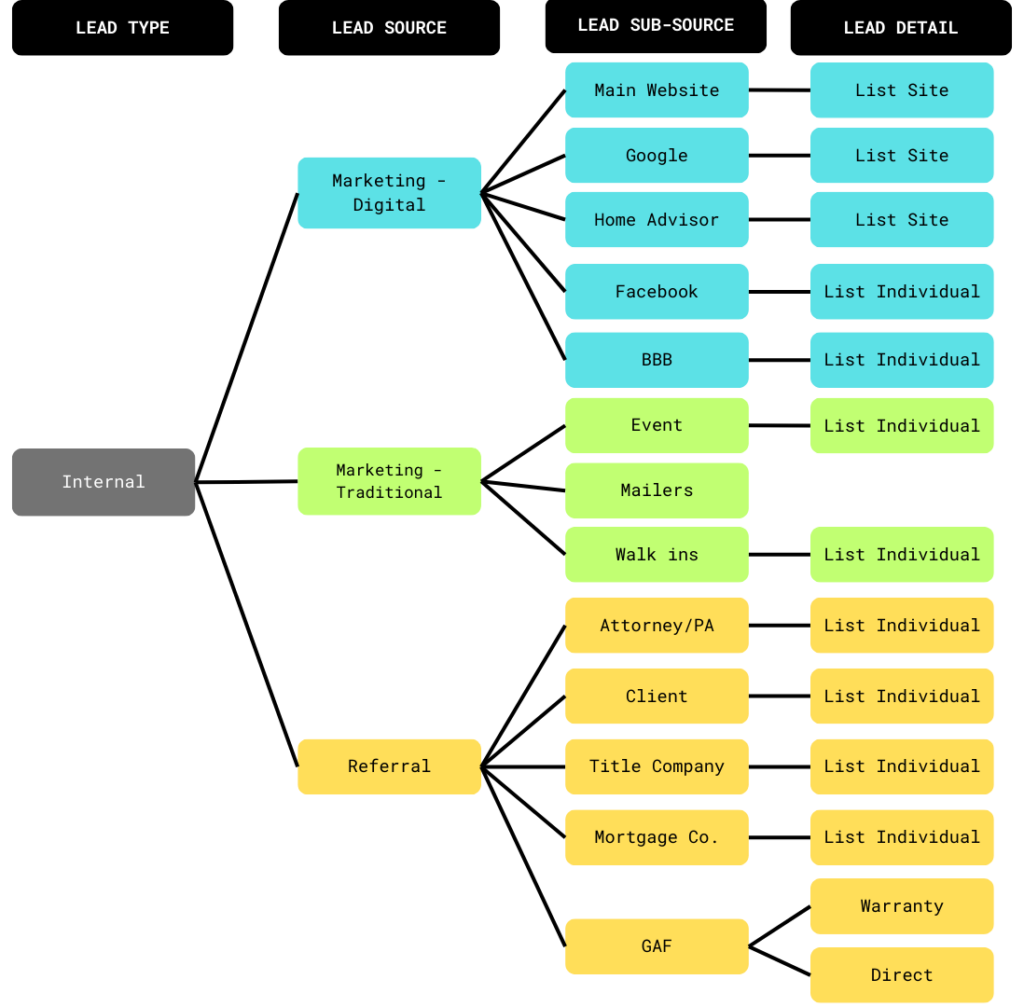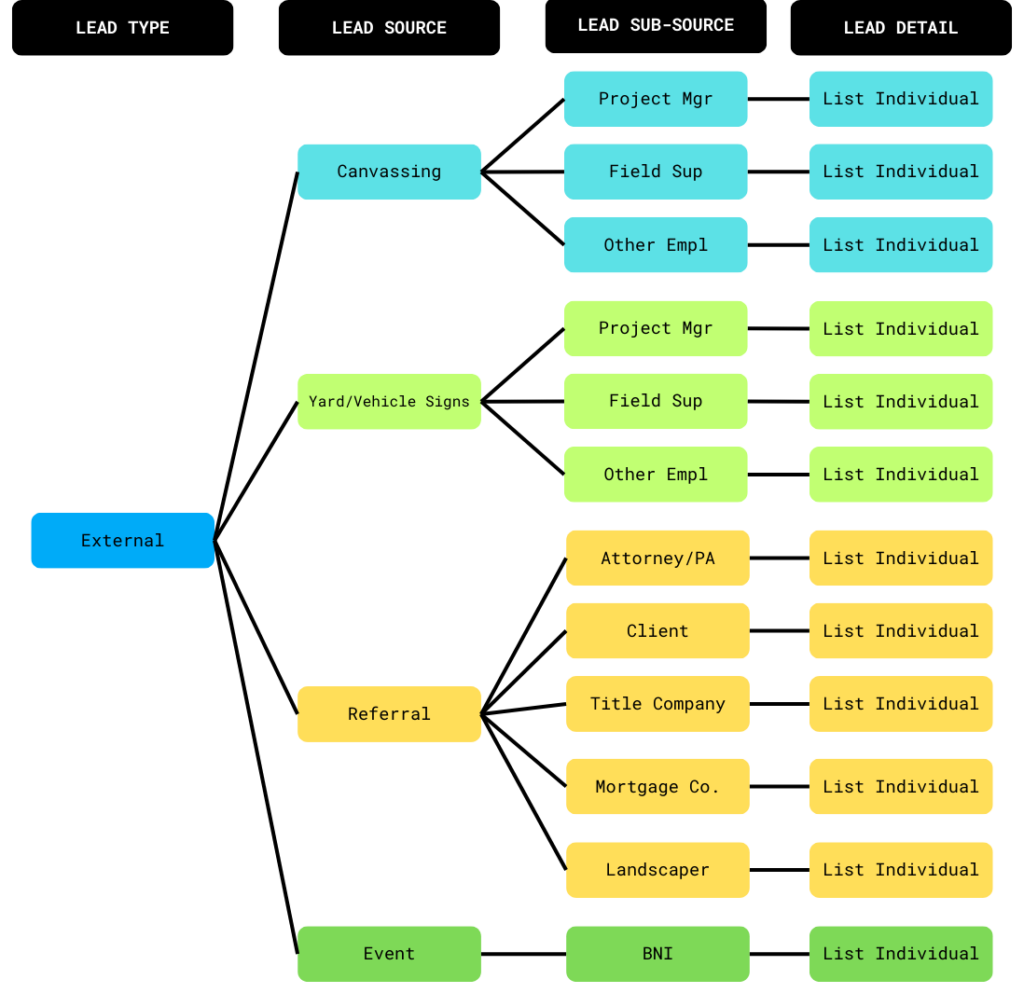In Central Florida, we’re no strangers to roofing emergencies. Homeowner tips that you might look up online often miss some of the nuances of the best ways to deal with these emergencies and protect your property.
While we hope you never experience a true roofing emergency, it’s still important to know what to do. By taking action quickly, you help to reduce the spread of water damage through the roof and the rest of the home.
Homeowner tips that overlook one aspect or another of a real Florida roofing emergency could leave you with a bigger problem than you had when you started. Here’s what the expert roofing contractors at Sheegog advise.
How Do You Know You Have a Roofing Emergency?
Most roofing emergencies are obvious. If you’ve noticed leaks after a storm, you should get the storm damage repaired right away. Even leaks that don’t appear to be serious at first can worsen if not fixed.
Any new storm damage accompanied by a live water leak should be considered an emergency. The bigger the leak, the more crucial it is to get a Central Florida roofing contractor on the case promptly.
What if you have a mild bout of rain and just happen to notice a little leak, or there’s no visible leak but obvious water damage on the ceiling? Although it’s not an emergency, you should still schedule a roof inspection in Central Florida within the next seven days.
A smaller leak that breaks out as a result of ordinary rain is not usually an emergency. However, it can indicate the roof is aging. Damage develops under the surface and spreads slowly. With the right roof repair expertise, most Central Florida roofing can be made sound again – as long as you don’t delay.
For us, a roofing emergency means something that needs care within the next 1-3 days.
It includes any of the following:
- Your roof springs a leak (of any size) as a direct result of storm damage.
- Your roof springs a large leak, regardless of whether there was a storm.
- You notice major water damage on a ceiling that’s not actively leaking.
- Any part of your roof system is visibly compromised, unsafe, or missing.
A roofing emergency isn’t just about the volume of water that’s entering the structure, although that’s a factor. It’s also about how the damage is affecting the safety of your family and the soundness of the building itself.
If in doubt, it’s always best to call a Central Florida roofing contractor and get personalized advice.
What to Do if You Have a Roofing Emergency in Central Florida
Here are our best homeowner tips for dealing with a Central Florida roofing emergency:
1. Safely Assess the Damage
Even if you’re confident that your roof is damaged, don’t go outside to assess the situation until you’re sure the weather has passed. If it’s late at night when the weather breaks, wait until the next morning. You may not be able to see everything, and should never get up on the roof at night.
Once it’s safe to do so, you can check out your roof from ground level with a pair of binoculars. We recommend staying off the roof if at all possible, but if you know how to walk on a roof and have appropriate shoes, you can also take a closer look. Any details you can give your Central Florida roofer will help.
2. Contact Sheegog Contracting
Contact Sheegog Contracting right away to talk to an experienced Central Florida roofer or leave a message for us to call back. Good Central Florida roofing contractors get booked up quickly after a storm. The sooner you call us, the faster we can get you on the schedule and repair your roof in Central Florida.
3. Use a Waterproof Tarp
In the state of Florida, most homeowners insurance policies say you have a duty to prevent further damage after a storm. You may be required to place a waterproof tarp on your roof. Even if this isn’t required, it is a terrific idea. You can limit further water damage and may even prevent mold intrusion this way.
4. Contact Your Insurer
Insurance companies may need to send an adjuster to get their own photos of your roof damage before they allow your roof repair insurance claim to go forward. Provide them with as much information as you can and inform them that a roofer is on the way. They’ll let you know if there’s anything else you need to do.
Contact us for fast and courteous storm damage roof repair in Central Florida.






